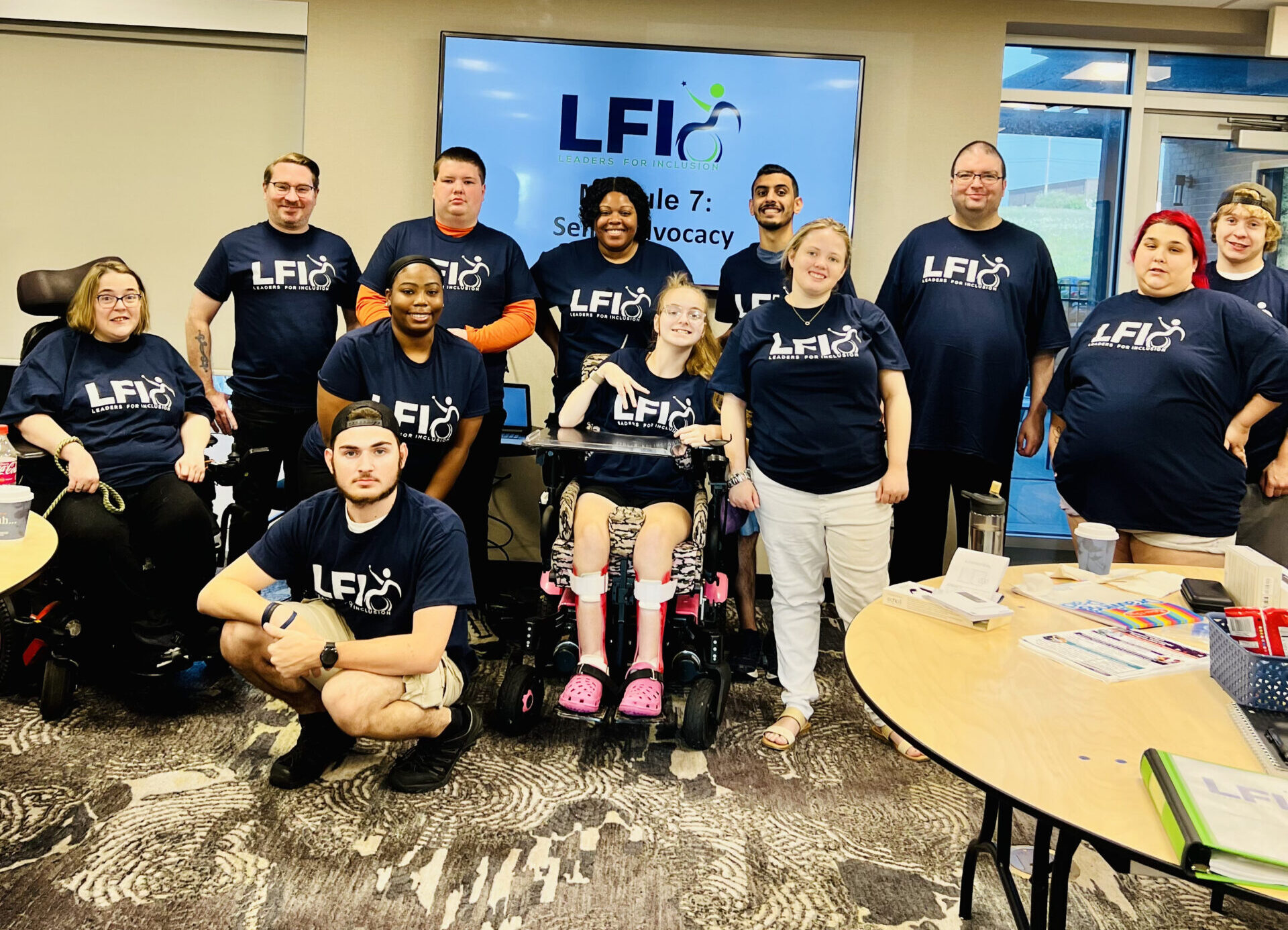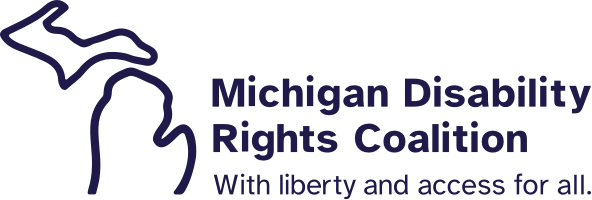About Us
Michigan Disability Rights Coalition (MDRC) is a nonprofit organization devoted to justice and opportunities for individuals with disabilities, promoting collaboration, and dismantling obstacles. For almost four decades, MDRC has partnered with individuals, families, and organizations to foster disability pride and build communities where everyone can participate fully.
MDRC is a cross-disability organization. This means we are an organization for people with all disabilities (apparent and non-apparent). We have made an intentional decision to place particular emphasis on valuing and including the desires and voices of people with intellectual and developmental disabilities.
What We Do MDRC's priorities are directly linked to our mission statement. We have focused our efforts on specific areas directly impacting the lives of people with disabilities in the state of Michigan. Our work includes:
- Advocacy and education
- Building leaders and fostering community engagement
- Expanding access to assistive technology
- Community partnerships
- Building connections between disability groups across Michigan
- Peer support
- Supporting individuals with disabilities
- Supporting families of individuals with disabilities
- Ending domestic and sexual violence
- Working with businesses, community organizations, local entities, state entities, and others on how to be inclusive and welcoming to people with disabilities
- And more
MDRC’s mission: “MDRC cultivates disability pride and strengthens the disability movement by recognizing disability as a natural and beautiful part of human diversity while collaborating to dismantle all forms of oppression.”
Our Commitment MDRC believes that creating truly welcoming communities means addressing all forms of discrimination. MDRC believes to our core that true inclusion requires addressing all forms of violence, including racism, classism, heterosexism, sexism, sizeism, and many other isms. MDRC upholds its mission with integrity by considering how funds are distributed, how work is executed, and who takes the lead. The foundation of MDRC's relationship with the community is built on representation, inclusivity, and connectedness. The majority of our staff and board members identify as individuals with disabilities, and all of our work is in collaboration with individuals with disabilities. We strive to create a society where individuals with disabilities can thrive without facing discrimination or barriers. Our work encompasses advocacy, education, and support services to support individuals with disabilities to lead self-determined lives. Join us in our mission to promote disability pride, dismantle barriers, and achieve true inclusion for all.
Disability Pride has always been core to the work we do. Learn more about MDRC's definitions of Disability Pride.

Our Vision
MDRC envisions a world where people with disabilities:
Live full lives within the community with equal rights, equity and opportunities.
Are valued as essential and vital members of the community.
Can be their full selves, in all their identities, in all aspects of their lives.
Have space for self-discovery, to cultivate community, and to develop pride.
Our mission is to cultivate disability pride and strengthen the disability movement by recognizing disability as a natural and beautiful part of human diversity while collaborating to dismantle all forms of oppression.
Our Strategies
MDRC envisions a world where people
with disabilities:
- Build the economic and political capacity of local
groups to effectively participate in communities
of choice and issues advocacy. - Create a state-wide collaborative technology
infrastructure to foster long-term communication
between local disability groups. - Sponsor events and activities that promote sharing
of best practice, collaborative planning, and the
building of consensus around policy impact goals. - Mold a staff team, with a long-term commitment
to Michigan's disability community as a customer
base—a team capable of working anywhere in the
state, focusing on the uncertain and rapidly evolving
disability policy future, and using collaborative
technologies to supplement face-to-face networking. - Forge a partnership between board, staff and
constituents for strategic development and
strategic priorities.
40 Years of Collaboration
At the Michigan Disability Rights Coalition (MDRC), collaboration is central to our mission and approach. We recognize that meaningful change happens through partnership and collective effort, which is why we have developed strong collaborative practices across all our work. Learn more about our collaborative approach.
Are you interested in collaborating with MDRC? Reach out today.
Check out MDRC Events!
Discover more about MDRC's work by checking out our events. All of our free and paid events can be found here.
Learn More About MDRC
Collaboration
Collaboration is key to who we are. We want to work with you!
Leadership Programs
Meet the Team
Creating Community
Our team shapes the organization by ensuring our work is rooted in our commitments. MDRC believes in access and inclusion of all people with disabilities. We will advocate, collaborate, educate, and celebrate our way to create a community that is inclusive, equitable, and just for all people. MDRC is a statewide organization serving every county in Michigan, and our staff live across the state of Michigan.

